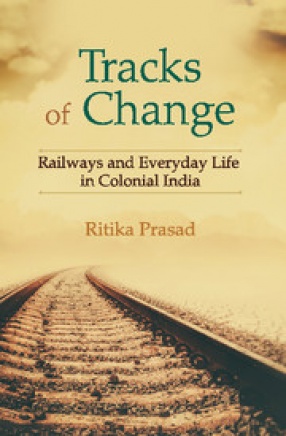Tracks of Change: Railways and Everyday Life in Colonial India
Price: $44.10 $49.00
Author
Edition
1st. ed.
Publisher
ISBN
9781107084216
Length
ix+315p., Illustrations; Maps; 24cm.
Subjects
From the mid-nineteenth century onwards, railways became increasingly important in the lives of a growing number of Indians. While allowing millions to collectively experience the endemic discomforts of third-class travel, the public opportunities for proximity and contact created by railways simultaneously compelled colonial society to confront questions about exclusion, difference, and community. It was not only passengers, however, who were affected by the ...

